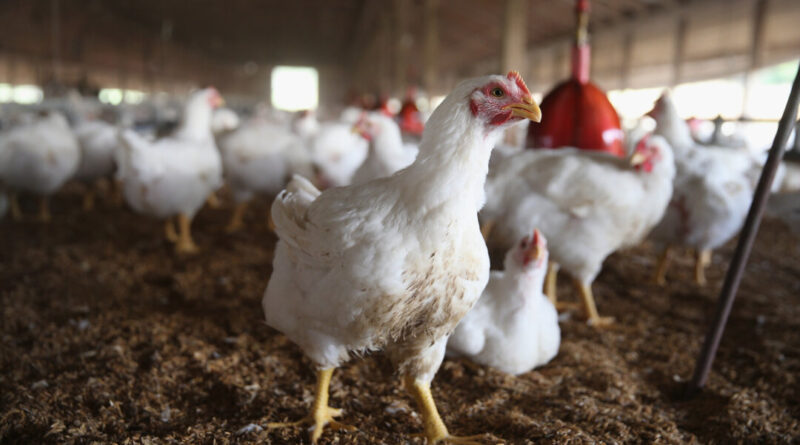Louisiana Detects First Suspected Human Case of Bird Flu
Nationwide, there have been sixty confirmed cases of human infections, with California reporting over half of these instances.
In Louisiana, the state has confirmed its “first presumptive positive human case” of bird flu and is urging residents to steer clear of infected animals.
According to the investigation, the individual had exposure to sick and dead birds believed to be infected with H5N1.
LDH indicated that the “general current public health risk associated with the highly infectious avian influenza remains low.”
The ongoing avian influenza outbreak among poultry and wild birds has persisted since 2022, the agency noted, while advising the public to limit contact with potentially infected animals.
The agency recommended that people “do not touch sick or dead animals or their droppings and do not bring sick wild animals into their homes.” Additionally, it advised pet owners to keep their pets away from sick or deceased animals and their excrement.
In light of the potential risks, LDH recommended that those employed on poultry or dairy farms should consider obtaining a seasonal flu vaccine. However, it clarified that “this vaccine will not protect against avian influenza viruses,” since it can merely “lower the risk of co-infection with both avian and flu viruses.”
If flocks become infected, poultry owners are instructed by LDH to “immediately quarantine” their premises. Individuals who have been in contact with sick or deceased animals or birds, as well as those working on farms experiencing bird flu outbreaks, should remain vigilant for respiratory symptoms or conjunctivitis (pink eye).
California reported the highest number of cases at 34, followed by Washington with 11, Colorado with 10, while Michigan recorded two cases, and Missouri, Oregon, and Texas each recorded one.
Animal Infections and Food Recall
The risk of infection extends beyond just farm animals and poultry. The Los Angeles County Department of Public Health announced on December 12 that it is investigating two potential avian flu cases in cats.
The California Department of Food and Agriculture has placed Raw Farm under quarantine, and the distribution of dairy products produced after November 27 has been halted.
The health department reported that both infected cats exhibited “a lack of appetite, fever, and neurological signs” after consuming the milk.
“The infected cats subsequently died after a severe deterioration of their condition and tested positive for Influenza A, which is a rare occurrence in felines,” it noted.
Those who had contact with the infected cats are being monitored for flu symptoms.
“To prevent the spread of diseases, including H5 bird flu, we strongly advise residents and their pets to steer clear of raw dairy and undercooked meat products,” stated Barbara Ferrer, the health department’s director.
After the infections were confirmed, the zoo temporarily ceased any guest activities involving direct animal contact and quarantined the infected or exposed animals.
According to CDC data, nearly 123 million poultry across 49 states have been impacted as of December 13. Additionally, 845 dairy herds in 16 states have been affected.





